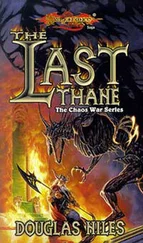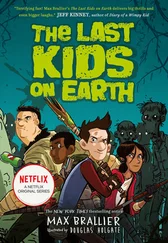She wanted to stand up. She wanted to say something, anything. She had spoken before larger crowds than this, crowds both supportive and hostile. But Charles had made his opinions plain, and the idea of making a marital disagreement public seemed untoward, if not downright wrong. She felt an uncharacteristic paralysis even as her heart raced.
Philip sat beside her silently as the meeting continued, more men and women voicing their concerns, but most of them in favor of a quarantine. After the silence between comments grew longer, Charles spoke again.
“I call for a voice vote,” he said.
Rebecca’s palms were sweaty; she rubbed one of them on her wool skirt. She wanted to stand. She wanted to stand. She stayed in her seat.
“All those in favor of the town closing its doors until the flu has passed,” Charles proclaimed, “say ‘aye.’”
The hall shook in response. Beside Rebecca, Philip voted quietly.
“All against, say ‘nay’”
In the hall were many dissenters, but they represented only a small fraction of the total in favor. The sound of the nays was heavy with defeatism, those voters having already realized that they were in the minority.
Rebecca voted nay, almost under her breath, aware that it barely mattered. The only person who heard her was Philip, who eyed her with concern.
Her husband nodded, the hall growing louder again as people spoke to one another, seemingly congratulating themselves on their decisiveness. To Rebecca, it was an empty happiness, for they had succeeded in an act of only ambivalent courage, some moral compromise whose weight, she feared, would begin to feel uncomfortable on their shoulders.
Next Charles discussed logistics: blocking the road and devising a schedule for the guards. After the meeting had adjourned and most people began exiting the stuffy building, a line formed in the left-hand aisle as men signed their names to volunteer for shifts. Rebecca wondered if as many men would have come forward if Graham hadn’t thrown the gauntlet at their feet. Perhaps some did so out of a sense of adventure, while others did so out of fear of what would happen if someone less trustworthy were given such a responsibility. She looked at some of the faces and guessed that they were driven by a sense of shame that they weren’t fighting in Europe. Some had registered for service but had been designated “essential war workers” owing to their duties at the mill; others had willfully turned their backs on what they considered a crooked war. Standing guard would prove to them and their families that they were indeed courageous men.
Beside her, Philip stood, and as he took his first step toward the line, Rebecca started to raise her hand instinctively to grab his shoulder, to pull him to his seat and tell him he was making a mistake. He was only sixteen! He should not stand out there and hold a gun against whoever might happen upon the town. But before she could grab him, he had stepped beyond her, into that long line, sidling up beside Graham, who nodded at his unofficial brother and patted him twice on the shoulder.
For many years Rebecca would remember that shoulder clasp and the way Philip’s back seemed to straighten under the weight of Graham’s hand.
What had the soldier’s name been? How old was he? Where did his family live, and how recently had he written to them? Were they reading his most recent letter now, trying not to tear up at the end of it, hoping that another would soon follow?
Philip’s mind raced. As much as he tried not to do this to himself, as much as he tried to focus on the supper on his plate, on his stepmother’s voice, he could not stop himself from wondering about the man whose life he had helped bring to a violent and completely unexpected halt.
“Are you all right?” Rebecca asked.
If everything were all right, Philip thought, then there would be no need to post armed guards by the town entrance. There would be no need for the rifles, and there would have been no need to shoot the soldier. The soldier would be sitting beside him right now, happily eating Rebecca’s cooking and telling them all for the tenth time how thankful he was for their hospitality.
“I’m fine.”
They’d ask the soldier about the war and he’d shrug, act uncomfortable with all the attention at first, but once he started talking about it, he’d find it difficult to stop. He’d tell them about his training and the rumors circulating through the camp about where they’d be deployed. He’d tell them he wasn’t in any hurry to get to the front but that once he got there, he’d be honored to do his duty for God and country.
Rebecca put her hand on Philip’s shoulder. “Try to eat some.”
“Sorry,” Philip said.
“Don’t be sorry. Just remember to take care of yourself. You have to eat.”
He ate. It took effort at first, but the first few bites awakened his stomach. The stew was warm and heavily salted, and dark enough for Philip to be less than sure whether there was any meat in it or if it was just vegetables. What day was today? Was it Wheatless Monday, Meatless Tuesday, Porkless Thursday? Every grocery store in America displayed those signs. Save food for the soldiers, everyone said. “Wheatless days in America make for sleepless nights in Germany.” Not that Philip would complain—he ate much better with the Worthys than he ever had with his own mother.
Outside it was already dark, the autumn sun chased away by the cold winds.
Philip tried not to think of the soldier. Instead, think of this house, the people inside it. Think of today.
“It’s Wednesday,” he blurted out.
“Yes?” Rebecca answered, her eyes watchful and warm.
He thought for a moment. “Are you sorry you can’t be at your meetings?” Typically, Wednesday evenings were when Rebecca would be meeting with fellow suffragists in Everett or Seattle, or maybe in some of the smaller towns, hoping to build up the movement with new recruits.
She nodded. “I am, but we’re all making sacrifices now.” Then she found a way to smile at the situation. “I’m sure the groups can survive without me for a few weeks.”
It was the second Wednesday since the quarantine had begun, so this would be the second week of meetings Rebecca had missed. She did not appreciate the forced inactivity; she sorely missed those suffrage meetings and rallies, as she had missed the rallies for the Woman’s Peace Party, rallies they’d held in the months leading up to America’s joining the war. She and other WPP members had made speeches and exhorted people to vote for the peace candidates, to fight against the pressures that the Preparedness Movement was exerting, those thinly disguised warmongers who wanted the country to build more warships and cannons and guns just in case. She missed those meetings especially, sitting with like-minded men and women, people who felt, like her, that no good could come of war, especially this war , fought for no justifiable reasons beyond those lies spread by the propagandists. But once Wilson had declared war and Congress passed the Espionage and Sedition Acts, suddenly the WPP was illegal—Americans weren’t allowed to preach peace anymore. Now everyone was supposed to sing happy songs about fighter pilots and doughboys, hate the kaiser and love their president.
Philip nodded at her. “Hopefully you’ll get to be out there again soon.”
“In the meantime, I can always write plenty of letters,” she said, smirking ruefully. “I just can’t mail them yet.”
“Maybe you’ll get suffrage anyway,” he said with a slight smile. “Maybe they’ll pass the law during the flu.”
She laughed. “That’d be nice, but I doubt it.”
The door opened, and in walked Laura, Philip’s adoptive sister. She was two years younger than Philip, with straight amber hair that might have been blonder had she lived someplace with more sunlight. She had brown eyes that could look incredibly mean when she wanted them to, which they often had in Philip’s first few years with the family. Laura wasn’t a bad person, Philip eventually learned, she was just used to being an only child. Having to accept an adopted brother—an older adopted brother, for goodness’ sake—at the age of nine had been a difficult task.
Читать дальше












